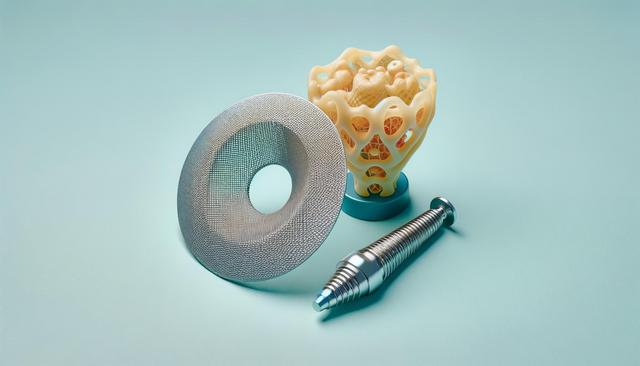Understanding Hernias and Why Early Detection Is Crucial
Hernias occur when an internal part of the body pushes through a weakness in the surrounding muscle or tissue wall. They can develop gradually and often start with barely noticeable signs, which is why understanding how to recognize a hernia early is essential. The earlier a hernia is detected, the more treatment options may be available, potentially avoiding complications and more invasive procedures. Early hernia symptoms typically include discomfort or pressure in the abdomen or groin, especially when lifting, bending, or coughing. Recognizing these mild hernia symptoms can make a significant difference in managing the condition effectively.
Many people ignore the first symptoms of hernia, often attributing them to muscle strain or digestion issues. This delay in seeking medical advice can lead to the hernia worsening over time. Some individuals may only notice a hernia bulge in the early stage after physical activity or when standing for long periods. Understanding these patterns and being attentive to subtle bodily changes can help in identifying the condition before it progresses.
Common Early Signs of Hernia You Shouldn’t Ignore
The early signs of hernia can vary depending on the type and location, but there are several common indicators to watch for. These signs often appear gradually and may not cause immediate pain, which is why they are frequently overlooked. Being aware of the following symptoms can help you take action sooner:
- A small, soft bulge in the abdomen or groin area that disappears when lying down
- Mild discomfort or a feeling of heaviness, especially after physical exertion
- Intermittent pain that worsens with movement or lifting
- Visible swelling or tenderness that increases over time
These mild hernia symptoms may initially be mistaken for common muscle pain or digestive discomfort. However, if you consistently notice any of these signs, it’s important to consult a healthcare provider. Early intervention can reduce the risk of complications such as strangulation or obstruction, which can be serious and require emergency care.
Why Hernia Symptoms in Adults Are Often Overlooked
Hernia symptoms in adults are frequently dismissed because they don’t always cause severe pain in the beginning. Many individuals assume that the discomfort they feel is temporary or related to other non-serious conditions. It’s not uncommon for adults to live with a hernia for months—or even years—without realizing the potential risks. This is particularly true for individuals who experience only mild hernia symptoms or whose hernia bulge appears only occasionally.
There are several reasons why hernia symptoms go unnoticed:
- The symptoms are subtle and intermittent
- The bulge may only appear during certain activities
- There is a lack of immediate pain or discomfort
- Misinterpretation of symptoms as minor muscle strain or fatigue
Because of these factors, it’s important to understand how to recognize a hernia early and to seek medical evaluation even if the symptoms seem minor. Early diagnosis can facilitate less invasive treatment approaches and reduce the likelihood of complications.
When and Why to Seek Medical Attention
If you suspect that you might be experiencing early hernia symptoms, it’s essential to seek medical advice promptly. While not all hernias require immediate surgical intervention, a healthcare provider can help determine the severity and advise on the most appropriate treatment options. Left untreated, a hernia can grow larger and become more painful, increasing the risk of complications such as tissue strangulation, which can be life-threatening.
Here are a few signs that indicate it’s time to consult a medical professional:
- Persistent or worsening bulge in the abdomen or groin
- Pain that intensifies with physical activity or doesn’t subside
- Nausea, vomiting, or inability to pass gas (could indicate complications)
- Discoloration or tenderness around the bulge
Taking early action not only helps in managing the condition more effectively but also improves the chances of having a quicker and smoother recovery, should treatment or surgery be required.
Hernia Treatment Options and Recovery Considerations
Once a hernia has been diagnosed, treatment options will depend on the type, size, and severity of the condition. In cases where the hernia is small and not causing significant symptoms, a watchful waiting approach may be recommended. However, for more noticeable or bothersome hernias, surgical repair is often advised to prevent further complications.
Surgical options include open surgery or minimally invasive laparoscopic procedures. Both methods aim to reinforce the weakened area and prevent recurrence. Recovery times vary depending on the procedure, but most individuals can return to light activities within a few weeks. Following post-operative instructions carefully is essential for a smooth recovery and to reduce the risk of complications.
During recovery, patients are typically advised to:
- Avoid heavy lifting or strenuous activities for a specified period
- Monitor the surgical site for signs of infection
- Follow a balanced diet to support healing
- Attend follow-up appointments to track progress
Understanding the treatment and recovery process can help individuals feel more prepared and less anxious about managing their condition. Early detection and timely intervention remain key to achieving a positive outcome.
Conclusion: Take Early Signs Seriously and Act Promptly
Recognizing the early signs of hernia and understanding how to respond is essential for maintaining your long-term health. While mild hernia symptoms might seem easy to ignore, they often signal the beginning of a condition that could worsen without proper attention. By learning how to recognize a hernia early and seeking timely medical advice, individuals can benefit from a broader range of treatment options and potentially avoid complications. If you notice unusual bulges, discomfort, or pressure that persists or recurs, don’t hesitate to consult a healthcare professional. Early action can make all the difference in managing hernias effectively and preserving your quality of life.




Leave a Reply